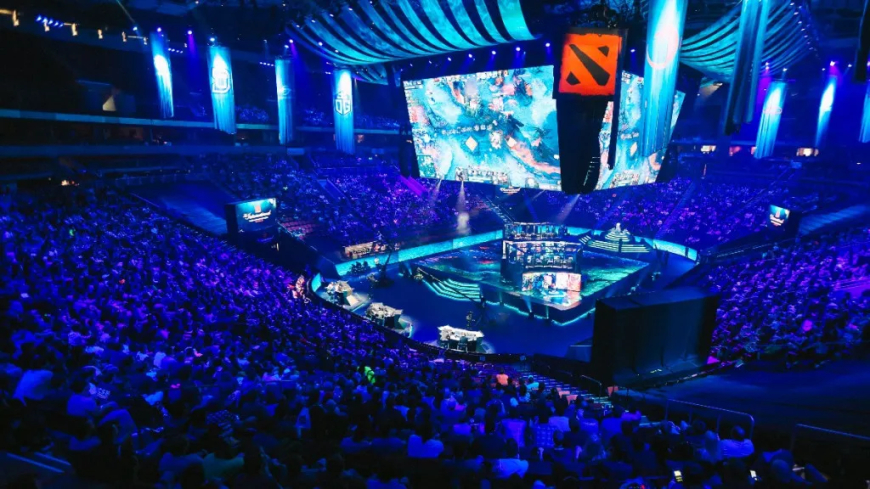From Friday Night Lights to Esports Nights: How Competitive Gaming Is Transforming Small-Town Sports Culture
Esports is reshaping small-town sports culture across the U.S., creating new opportunities for youth, boosting local economies, and redefining community traditions once centered only on traditional athletics.

For generations, small-town America has rallied around high school football, basketball, or baseball. The Friday night lights have long symbolized community pride, local heroes, and the social heartbeat of rural life. But in towns across the Midwest and South, another kind of arena is lighting up: the digital battleground of esports.
Esports, once dismissed as a niche hobby, is now reshaping sports culture in places far removed from the big-city tech hubs. Rural high schools and community centers are forming competitive gaming teams, drawing crowds to gyms turned into streaming studios, and in some cases, helping revitalize struggling local economies.
A New Kind of Team Spirit
In the town of Marion, Kansas, population just under 2,000, the local high school launched its first esports team in 2023. Within a year, the program had grown to 40 students competing in titles like Rocket League, League of Legends, and Overwatch 2.
“We had students who never thought of themselves as athletes suddenly finding a team where they belonged,” said Coach Daniel Harris, the school’s IT director who now doubles as an esports coach. “It’s given kids who weren’t into football or track a chance to represent their school.”
The sense of belonging is a recurring theme. Students who once felt sidelined in traditional sports are now finding themselves in jerseys, traveling to tournaments, and hearing their names announced in front of cheering classmates.
Esports and Local Economies
The rise of esports in rural areas isn’t just about student engagement—it’s also about economic opportunity. Hosting regional gaming tournaments brings new business to towns that otherwise see limited weekend tourism.
Hotels, diners, and even local print shops benefit from out-of-town teams and fans. In Carthage, Missouri, the Chamber of Commerce reported a 15% boost in weekend revenue during a multi-school esports invitational.
Moreover, tech companies and universities are taking notice. Some small-town programs have secured sponsorships from gaming hardware firms eager to expand into new markets. Colleges are also recruiting standout esports players, offering scholarships that once seemed unthinkable in these communities.
Bridging Generations
For many parents and grandparents, the idea of esports as a “real sport” took some convincing. Yet, as they watch their kids practice teamwork, discipline, and strategy—values long associated with traditional athletics—the skepticism has begun to fade.
“At first I didn’t get it,” admitted Sarah McCall, a parent from rural Tennessee whose son plays on his high school’s varsity esports squad. “But when I saw how much time he spent practicing and how excited he was about representing his school, I realized it’s no different than when my husband played basketball in the ’90s.”
In fact, some schools are now hosting joint pep rallies, where football captains and esports captains stand side by side—a symbolic shift in what it means to be an athlete in small-town America.
Challenges on the Digital Field
Despite the enthusiasm, rural esports programs face hurdles. Limited internet infrastructure in some areas hampers online competition, and funding can be scarce compared to established sports programs. Equipment, from high-performance PCs to gaming chairs, requires investments that many school budgets struggle to cover.
Still, community support is helping bridge the gap. Booster clubs, once dedicated solely to baseball uniforms or gym renovations, are beginning to raise funds for esports gear. Local businesses often step in with sponsorships, providing jerseys, streaming equipment, or even internet upgrades.
The Bigger Picture: Redefining Small-Town Sports Culture
The rise of esports is not replacing traditional sports but complementing them. Instead of football fields standing empty, gymnasiums are doubling as esports arenas. Communities that once had only a handful of extracurricular activities are discovering new ways to engage their youth and keep them rooted in town life.
National organizations such as the High School Esports League (HSEL) are playing a major role in legitimizing the movement, providing structured competition and national rankings that give small-town teams a platform on par with urban schools.
According to HSEL, more than 3,400 schools across the U.S. now participate in organized esports—a figure that continues to climb each year. The ripple effect is undeniable: esports is no longer an outsider activity but a cornerstone of emerging sports culture.
Looking Ahead
As rural communities continue to adapt, esports is poised to become as ingrained in small-town culture as basketball hoops on barns or baseball diamonds at local parks. Its growth not only reflects the changing interests of youth but also highlights how tradition and innovation can coexist.
Esports in small towns isn’t just about screens and controllers—it’s about identity, opportunity, and community pride. And as more students put on headsets instead of helmets, one thing is clear: the definition of sports in America’s heartland is evolving, and it’s only just begun.




















































